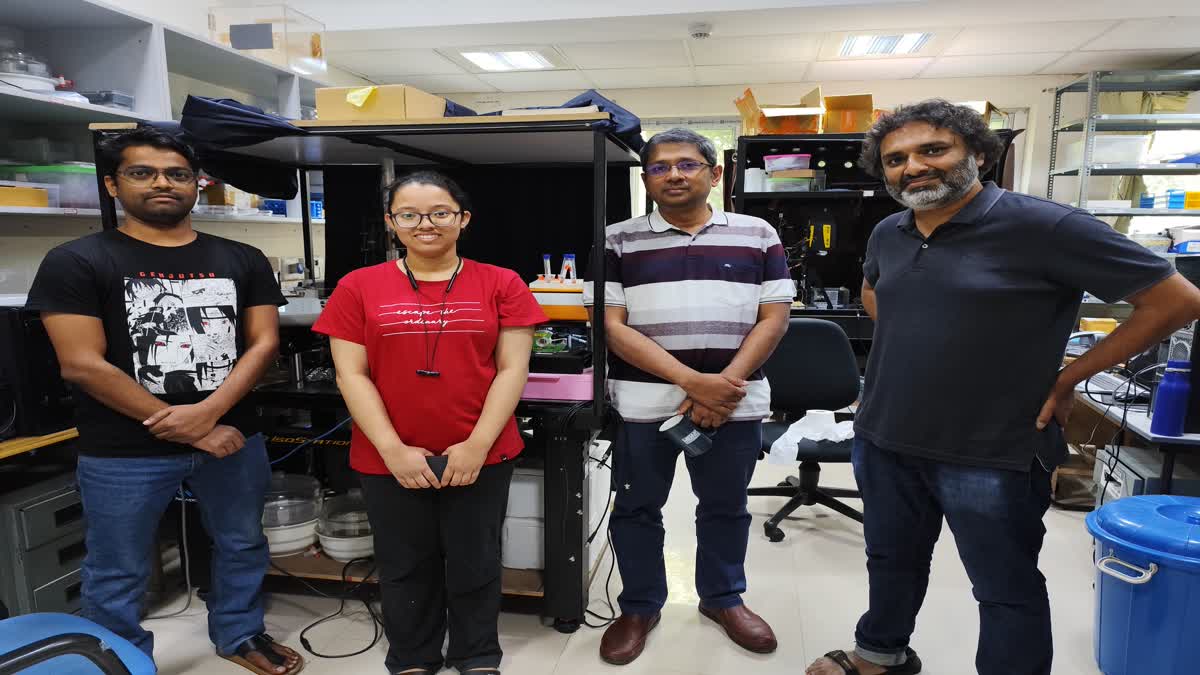By Anubha Jain
Bengaluru: Metabolic disorders are seen in conditions like diabetes and ageing that eventually accelerate the spread of cancer. When people age or suffer from chronic diseases like diabetes, and if they get cancer the outcomes become worse. By using their expertise in cancer cell biology and microfluidics respectively, researchers of the Indian Institute of Science (IISc), Bengaluru designed this novel dual organ-on-chip – a microfluidic culture platform that reconstructs the anatomy of a tumour sitting near a blood vessel, which is amenable to microscopic observation.
The team of IISc scientists, who conducted this novel study, now published in the journal, Small, was led by Prof. Ramray Bhat from the Department of Developmental Biology and Genetics, Prof. Prosenjit Sen, from the Centre for Nano Science and Engineering (CeNSE) and their joint student Nilesh Kumar. Using the chip, these scientists revealed that exposure to methylglyoxal (MG) accelerates cancer cell entry into the blood vessel. Such innovative and interdisciplinary research work opens doors to exciting therapeutic and translational endeavours in cancer research.
Seeing a similar kind of ‘lung-on-chip’ model in the Western world designed for studying the impact of smoking on human lungs, and with an intent to improve health through interdisciplinary practices, the idea germinated to these scientists for building this first-of-its-kind chip. Conceived in 2020 it took them 5 long years to achieve their mission. The study got delayed as such technologies are not commonly present in India.
This organ-on-chip (OOC) allows patients’ cells to be put under the microscope and that would eventually help to know how and why the outcome of a disease and its management differ from individual to individual. This is termed ‘precision therapy’ where the chips replicate cancer spread in a diabetic environment versus a non-diabetic environment or in an older tissue environment compared to a younger environment.
Nilesh Kumar said that OOC provides a viable alternative in biological research by eliminating the need to sacrifice animals satisfying ethical concerns for any research study. Furthermore, OOC technology mimics the human body’s biological conditions using the intersection of microfluidics and human cells, yielding more precise outcomes than conventional culture methods. The microfluidics platform offers several benefits, such as parallelising tissue architecture to create real-time simulations of the human body.
Prof. Ramray Bhat who elaborated his study in detail to ETV Bharat said, "Cancer is a disease in which the cancer cells move from where they start in the body to different parts of the body. This process is called metastasis. In breast cancer, a woman can die not because the breast stops functioning but because the cancer cells move into the blood and to different organs of the body."
Now the question comes: does diabetes or ageing worsen the entry of cancer cells from the origin site into the blood? This question has been researched earlier by doctors but not proven through experiments in a clear manner. To study or prove this process Prof. Bhat said that it was not possible to mimic the whole process of cancer on any animal model and the scientists couldn't witness the cancer cells moving from the organ of the mouse to its blood vessels. And it became difficult for them to visualise this process in mice.
